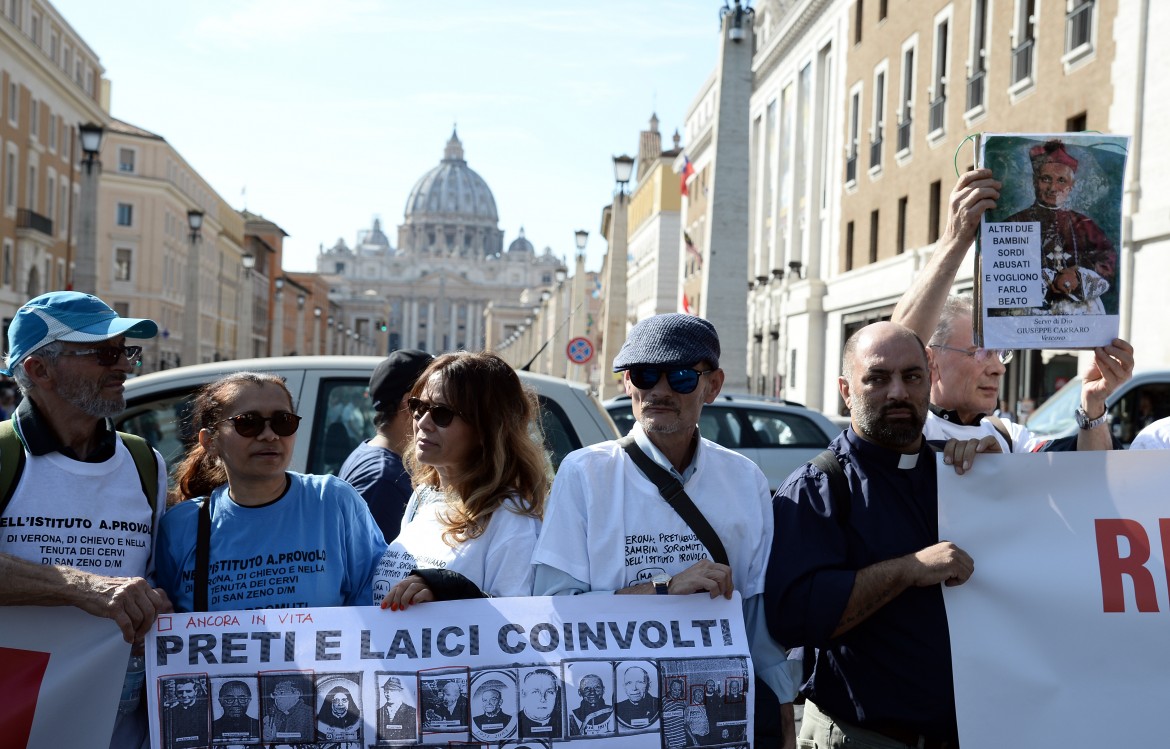Report
The Church can no longer claim ‘state secrets’ to hide child abuse
The document sets out that “accusations, trials and decisions” concerning crimes of sexual abuse and violence against minors and “vulnerable persons,” as well as the “production, exhibition, possession or distribution, including by electronic means, of child pornography” are no longer covered by pontifical secrecy.

There is no more pontifical secret in cases of violence and sexual abuse against minors committed by priests and members of religious orders. This decision was taken by Pope Francis in his Instruction On the Confidentiality of Legal Proceedings, approved on Dec. 6 and published Tuesday by the press office of the Holy See.
From now on, the Vatican and the bishops of all the dioceses in the world will no longer be able to claim pontifical secrecy—the de facto equivalent of a state secret, while confessional secrecy remains unaffected—and will no longer be able to deny local magistrates access to documents and acts from canonical trials kept in the archives of the Holy See and the local dioceses if these involve crimes of violence and sexual abuse against minors.
This is a decision of great importance, which has been a longstanding demand from the associations of victims of pedophile priests. The victims’ associations have expressed their satisfaction at what they consider to be an important first step by the Catholic Church in the fight against pedophilia among the clergy. However, there are still other decisions which have yet to be taken, starting with the obligation to report pedophile priests to the civil authorities.
The decision to issue the Instruction On the Confidentiality of Legal Proceedings was taken by Pope Francis on Dec. 4, during an audience with Monsignor Edgar Peña Parra, who is the Substitute of the Secretariat of State for General Affairs, a sort of Vatican Minister of the Interior. It was promulgated by the Vatican Secretary of State, Cardinal Pietro Parolin, two days later.
The document sets out that “accusations, trials and decisions” concerning crimes of sexual abuse and violence against minors and “vulnerable persons,” as well as the “production, exhibition, possession or distribution, including by electronic means, of child pornography” are no longer covered by pontifical secrecy. Therefore, all crimes involving sexual abuse and pornography involving minors are excluded from secrecy, while the definition of “minors” is also updated with a second order of the pontiff, raising the age from 14 to 18 years old.
The principle of “office confidentiality” is maintained—to “protect the good name, image and privacy of all the persons involved”—but it “shall not prevent the fulfilment of the obligations laid down in all places by civil laws, including any reporting obligations, and the execution of enforceable requests of civil judicial authorities.” That means church officials can no longer refuse to answer to local judicial authorities who are investigating a pedophile priest.
Finally, the document establishes that the ecclesiastical authority cannot impose “any obligation of silence” on the victim and the witnesses, as has often happened in the past, contributing to the covering up of the trials.
This pontifical intervention is a direct consequence of the international summit on child abuse in the Church convened in February by Pope Francis at the Vatican. That summit, attended by all the cardinals of the Roman Curia, the presidents of the Bishops’ Conferences, the heads of the Eastern Churches and the general superiors of the religious congregations of the whole world, did not result in any immediate operative decisions being taken (which was not its purpose). However, many of the participants, most prominently including the German Cardinal Reinhard Marx, called—among other things—for the revision of the norms on pontifical secrecy, which dated back to the age of Paul VI.
At the end of March, Francis approved the obligation to report pedophile priests to the criminal judicial authorities, but only within the Vatican: as a result, the measure was highly symbolic but had almost no practical consequence, since it only concerned what happens within the walls of the Holy See. Now, however, the end of papal secrecy with regard to crimes of violence and sexual abuse of minors has been extended to the universal Church.
There is still no church-wide obligation to denounce such crimes to the local authorities—the other measure demanded loudly by the victims’ associations, and which continues to be ignored by the Holy See and by many states—but from now on, when faced with the requests of a local judicial authority, cardinals, bishops and religious superiors will no longer be able to remain silent and hide behind the shield of pontifical secrecy. Nor can the Vatican refuse to send documents and acts from a trial concerning crimes involving the sexual abuse of minors in response to international letters rogatory. And the church authorities from every diocese will no longer be able to stonewall officials who are investigating pedophile priests.
It is an “epochal decision,” Monsignor Charles Scicluna said in an interview with L’Osservatore Romano, Archbishop of Malta, Adjunct Secretary of the Congregation for the Doctrine of the Faith and a figure deeply involved in the fight against pedophilia among the clergy. The documents will not be released “into the public domain, but the possibility of more concrete collaboration with state authorities is facilitated.” That is something that has hardly ever happened so far.
Originally published at https://ilmanifesto.it/rivoluzione-in-vaticano-cade-il-segreto-sui-casi-di-pedofilia/ on 2019-12-18
